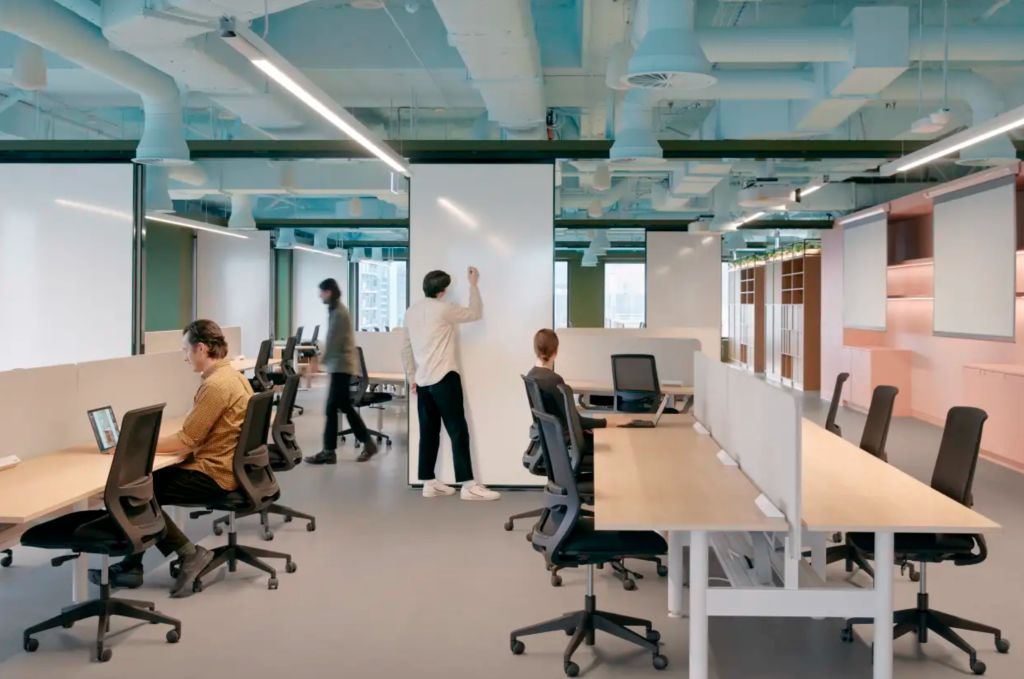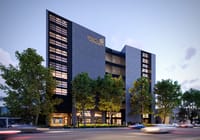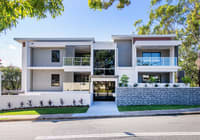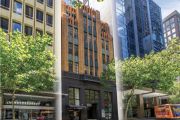
Landlords boost proptech spend as workers return to the office
The pandemic has unleashed a fresh wave of investment into building technology, as landlords seek to keep workers connected and maintain a sense of community.
Building portal provider Equiem signed up more than 100 new buildings in the March quarter, its strongest sales period to date and bringing its total to about 600, a move the Melbourne-based company said reflected the increasing complexity of managing office assets.
“As people return, they expect more from their office buildings,” Equiem chief executive Gabrielle McMillan said.
“The bar has been raised as a result of the choices now on offer, both at the employee level – as they choose where they want to work from today – and at the company level, with vacancy increases.”
For Equiem, part of the demand came from landlords keen to link consumer-facing portals with back-office functions such as building management.
The growth – 60 per cent of which came from the US market – reflected the increasing demands on landlords and employers to manage flexible workforces and measure occupancy, as well as meeting higher standards for safety protocols, digital access and air quality, Ms McMillan said.
The challenges for employers are changing. Workers are beginning to move back to office buildings, but it is proving to be a harder task than expected for many employers to get them back after two years of working from home and remotely, Seek chief executive Kendra Banks said last week.
Property Council of Australia figures show the Melbourne CBD’s occupancy rate in March stood at 32 per cent, nearly half the 61 per cent figure of Adelaide.
This was prompting more expenditure on technology beyond that incurred to support remote working, said Lendlease’s head of customer and digital for investment management, Natalie Slessor.
“The pandemic definitely accelerated the adoption of customer-facing digital engagement and technology as landlords reached out to those no longer on site to communicate to engage, to inspire – let’s hope – and invite back,” Ms Slessor said.
“There is an awful lot to be done. I think the investment in customer-facing tech is potentially the tip of the iceberg in much more integration between the customer and operations and sustainability in buildings.”
Lendlease has invested in a range of platforms. It has 10,000 people on an app it launched with Equiem during lockdown to keep users of its office buildings connected to the city and to their work community.
It has adopted another platform, CBRE Host, for its residential East Tower at Melbourne Quarter and has a further 5000 office users in the three International Towers Barangaroo on a separate app that Lendlease’s International Towers Trust developed in-house.
The landlord and developer was now expanding the use of the Worklife office app to provide mobile access to buildings instead of security passes as well as providing access to perks on other services, Ms Slessor said.
“Functionality-wise, it’s really got us,” she said. “We’re extending the functionality of the technology that our people have in the palm of their hands. Now our customers have muscle memory for using Worklife, what else can we funnel through it?”
The GPT Group says the greatest demand coming out of the pandemic is for premium smaller office suites, up to 1000sq m in size, that are fully equipped with all technology that tenants can move into and use straight away, rather than put in the necessary cabling and technology themselves.
“We were always doing suites – that was a product we had always put into the market,” said John Hanrahan, GPT’s office head of asset management.
“But what’s changed now is we’re building more of them. That sort of product has at least doubled. That’s where really the activity in the leasing has been.”
Of the 55 per cent of GPT’s newly refurbished Queen and Collins office tower in the Melbourne CBD, nearly half – or 20 percentage points – of the space leased so far was premium suites or the fully equipped Clubhouse product, Mr Hanrahan said.











